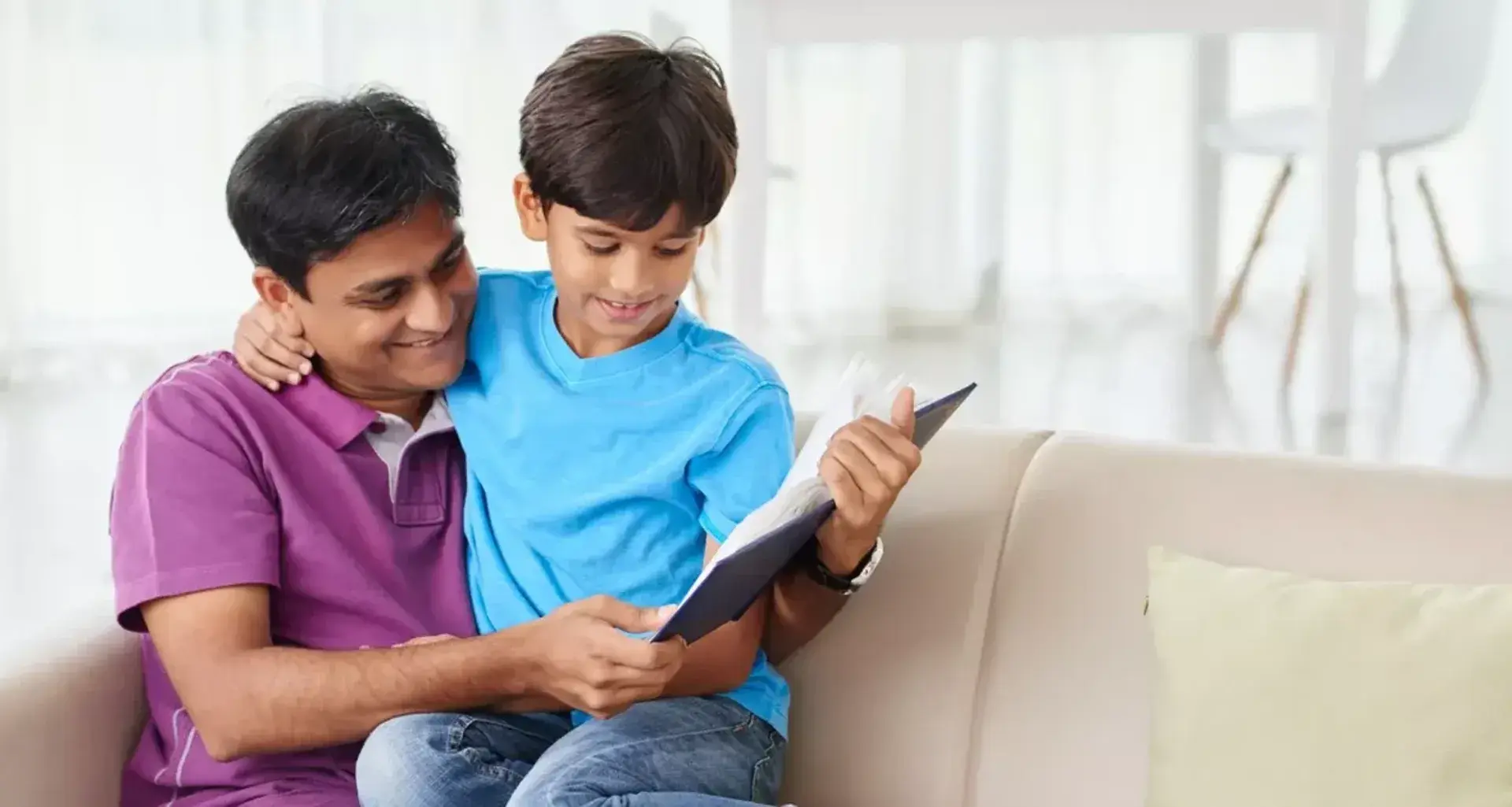🎈 The Power of Boredom: Why Your Child Needs Screen-Free Moments to Thrive
In a world where digital stimulation is just one tap away, silence and stillness have become rare for children. Tablets glow during breakfast, smartphones buzz during walks, and even playtime is increasingly defined by swipes and streams. But what if the very thing we try to avoid—boredom—is actually the secret sauce to growth, creativity, and emotional intelligence?
Here’s the truth most people don’t talk about:
👉 Your child needs screen-free moments to thrive.
And not just a few minutes—they need real, unplugged time to be bored, to wonder, to create, and to simply “be.”
Contents
- 1 💭 Why Boredom Isn’t a Bad Word
- 2 🌱 The Developmental Magic of Screen-Free Moments
- 3 🚫 The Hidden Cost of Filling Every Moment with Screens
- 4 🙋♂️ So What Can Parents Do?
- 5 📱 How YouCare Supports Screen-Free Moments
- 6 💬 Let’s Normalize Boredom Again
- 7 💡 Practical Ways to Create Screen-Free Moments
- 8 🙋♀️ FAQs – Screen-Free Moments
- 9 🧠 Final Thoughts: The Strength in Stillness
💭 Why Boredom Isn’t a Bad Word

Many parents feel an urgent need to keep their kids “occupied” at all times. The moment boredom creeps in, out comes a screen to rescue the day. But here’s what research and child psychologists are starting to emphasize:
Boredom isn’t the enemy—it’s the beginning of imagination.
When a child says “I’m bored,” what they’re really saying is, “I’m waiting for something external to entertain me.” That’s the golden moment for parents. Because what happens next—if we let it happen—is powerful:
✨ They invent games.
✨ They talk to themselves and reflect.
✨ They draw, build, explore, and even daydream.
✨ They become problem-solvers, not content-consumers.
Screen-Free Moments aren’t just breaks from devices; they’re windows into who your child really is without digital distraction.
🌱 The Developmental Magic of Screen-Free Moments

Unplugged time is linked to:
🧠 Boosted Creativity – Without the constant drip of videos or games, the brain is forced to imagine and innovate.
💬 Better Communication Skills – Bored kids talk. They ask questions, start conversations, or play pretend—improving verbal skills and emotional intelligence.
💡 Resilience & Self-Regulation – Screen-Free Moments teach kids how to sit with discomfort, how to manage frustration, and how to shift focus without external rewards.
🎨 Unstructured Play – When kids are free to create their own fun, they naturally develop leadership, patience, and collaboration.
🚫 The Hidden Cost of Filling Every Moment with Screens
You might think a few extra minutes of screen time won’t hurt. But over time, the habit of instantly filling every dull moment with content rewires a child’s brain.
📉 Reduced attention span
😩 Lower tolerance for boredom
📱 Dependence on external entertainment
🚫 Weaker impulse control
💤 Disrupted sleep patterns
More than anything, the constant consumption keeps them reactive, not reflective. Without screen-free moments, your child rarely gets the chance to process emotions or learn how to be still.
🙋♂️ So What Can Parents Do?

Here’s where the real work—and magic—begins. No app or algorithm can replace your presence and intention as a parent.
✔️ Set the Tone
Create a family culture that values silence, nature, and creativity. Have a “no-device” corner or a “boredom basket” filled with paper, puzzles, and paint.
✔️ Model It Yourself
When was the last time you embraced a screen-free moment? Sit quietly. Read a physical book. Journal. Your actions speak louder than your parental controls.
✔️ Schedule Boredom
Yes, actually put it in the daily routine:
4:00 PM – Boredom Time ⏰
No screens, no structured activities—just space to be.
📱 How YouCare Supports Screen-Free Moments

Let’s be real. Total manual control isn’t always possible—especially when you’re juggling jobs, housework, and life. That’s where YouCare steps in as your digital co-pilot.
YouCare empowers parents to enforce screen-free moments with intention, not restriction:
🕒 Screen Time Limits – Automatically lock screens during “boredom hours” or quiet time.
📊 Usage Reports – Track how long your child is spending on entertainment vs. learning.
📴 Scheduled Downtime – Set auto-off periods during meals, bedtime, or play hours.
👨👧👦 Individual Profiles – Tailor boredom-friendly routines per child.
📥 Parental Feedback Loop – Understand patterns and coach your kids through healthier habits.
It’s not about control—it’s about creating space for growth. 🌿
💬 Let’s Normalize Boredom Again
We live in a culture that fears silence and overvalues “productivity.” But your child’s growth isn’t about always being busy—it’s about learning to be whole when they’re still.
Let them lie on the floor and stare at the ceiling.
Let them doodle, sing nonsense songs, or write their own comic books.
Let them be bored.
Because in those screen-free moments, they’re actually building their inner world—the one they’ll draw strength from for the rest of their lives.
💡 Practical Ways to Create Screen-Free Moments
Here are some fun, low-stress ways to create more boredom-friendly space:
🎲 Create a DIY “Bored Jar” – Fill it with screen-free ideas like “make a sock puppet,” “build a LEGO spaceship,” or “write a letter to your future self.”
📦 Build a “Curiosity Box” – Keep random items like string, rocks, old keys, bottle caps, and let them invent something.
🌳 Nature Challenges – “Go outside and find 3 things that smell nice, feel soft, or are shaped like a heart.”
📚 Story Time – Let your child make up a story instead of reading one. Or record themselves acting out a play.
🙋♀️ FAQs – Screen-Free Moments

❓ How many screen-free moments should my child have in a day?
There’s no perfect number, but aim for at least 2–3 unplugged sessions daily, ranging from 30 minutes to an hour each.
❓ Won’t my child feel left out if their friends are online?
Yes, sometimes. That’s okay. You’re not raising followers—you’re raising leaders. Balance is key, and the goal is intentional screen use, not zero screen use.
❓ What if my child says “I’m bored” every time I take the screen away?
That’s a good sign. It means their brain is detoxing from constant stimulation. Let the discomfort pass—it’s like a workout for their creativity.
❓ Is screen-free time realistic in today’s tech world?
Absolutely. It’s not about removing screens forever—it’s about reclaiming quiet, playful, and creative moments that build resilience.
🧠 Final Thoughts: The Strength in Stillness
Boredom isn’t broken. It’s beautiful.
Screen-Free Moments aren’t punishments. They’re pathways.
And your child doesn’t need more stimulation to thrive—they need space.
🌈 Space to think.
🌿 Space to feel.
💡 Space to create.
So take a deep breath, unplug the noise, and open the door to imagination.
Because thriving doesn’t always happen on a screen—it often begins without one.
